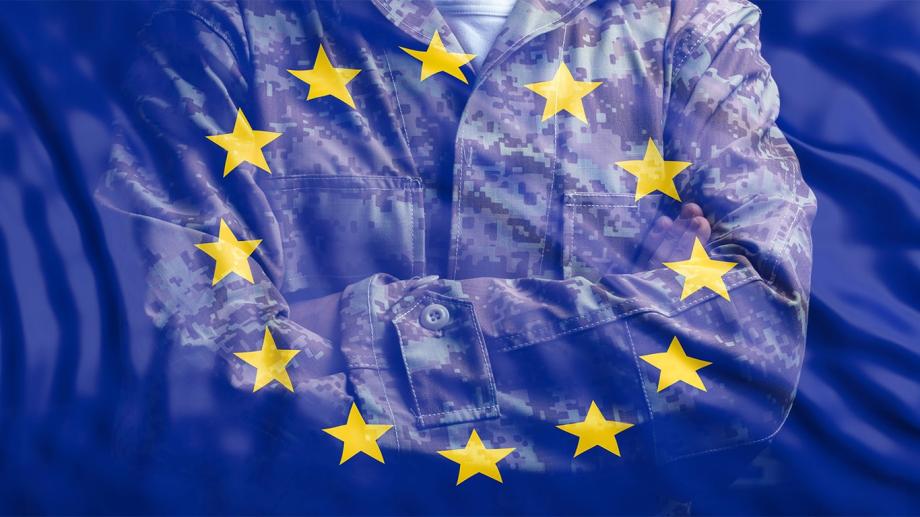Third Countries Are Invited to Join European Military Projects

The EU, under certain conditions, should be open to cooperation with like-minded states.
As the European Union comes to terms with a changing strategic environment, it needs to do more to provide for its own defence and security. This includes better and more comprehensive EU-NATO coordination but also the participation of non-EU members in projects and processes initiated within EU structures. This discussion is especially important now, when the EU while coping with COVID-19, is simultaneously seeking to build its open strategic autonomy.
Current gloomy economic projections indicate that the impact of the pandemic will neither spare the defence sector nor alleviate geopolitical tensions. Therefore, the EU, under certain conditions, should be open to cooperation with like-minded states, especially those with which member states already have a track record of cooperation. It is worth noting that discussions concerning third-country participation distinguish between various structures and pillars of European defence integration.
Specifically, the European Defence Fund (EDF), the European Defence Agency (EDA) and Permanent Structured Cooperation (PESCO) have different rules and are at varying stages of adopting them. While rules on third-country participation were established for the EDF and EDA in 2019, EU member states have only just agreed to a regime covering the politically more sensitive area of PESCO projects.
Why Cooperate With Non-EU Countries?
According to the latest agreement of the European Council, third parties will be allowed to participate if their inclusion were deemed to add substantial added value to respective projects being carried out and when such participation will not lead to dependencies on third states. Any third country participant need also to share “the values on which the EU is founded” and “respect the principle of good neighbourly relations with the Member States.”
The general conditions, consequently, of a fairly restrictive approach toward participation, undoubtedly satisfy only the closest partners of choice like the United States, Norway and the United Kingdom. In other words, the doors will remain closed to, for example, Turkey and China. Leaving open the possibility for Turkish participation was a sticking point, and some countries, including Greece and Cyprus, are wary. Some view a prior Finnish proposal as not sufficiently exclusionary on the matter. It is notable that neither PESCO nor the EDF alter the EU’s existing rules on defence procurement.
Third countries can contribute relevant capacities for military operations, technological know-how as well as research and development. Their participation also facilitates closer EU working relationships with neighbours and non-EU NATO allies, helping safeguard NATO unity. Take the example of Norway — an EU-oriented country with a third of its exports going to the bloc. As the only member of the European Free Trade Association that is both part of the European Economic Area and host to the notable defence industry, Norway would be a substantial contributor to PESCO projects, from research programs to the joint development and acquisition of defence capabilities initiatives.
Norway indeed maintains a diversified and high-tech defence industry, spanning communication technology to air defence, from undersea systems to state-of-the-art missiles like the renowned Norwegian Advanced Surface to Air Missile System (NASAMS). Moreover, Norway is home to numerous EU defence contractor subsidiaries and production plants like the multinational Airbus, Spain’s Indra, Sweden’s Saab and France’s Thales. At a time when the EDF and PESCO provide a vehicle for fostering EU partnerships and consortia in the defence sector, Norway would be a particularly pertinent addition. Norway could, for example, contribute to the Modular Unmanned Ground Systems (MUGS), a PESCO initiative already supported by seven EU member states.
Cooperation in Times of COVID-19
But the benefits of joining PESCO initiatives are not limited to the positive economic impact that occurs from defence cooperation. Projects can also serve as platforms for nurturing resilience and improving preparedness for future pandemics. In this regard, military mobility, one of PESCO’s core projects, can aid, for example, in facilitating the movement of troops and military equipment, including sanitary and medical materials, across borders. Progress on the simplification and standardization of cross-border military transport, a key PESCO priority, would further enable speedy and swift deployment of military personnel and equipment like food, doctors and field hospitals, for instance, from one country to the other, thereby strengthening EU solidarity.
While the impetus for European defence integration is undeniable, we should not take for granted that it will translate into enhanced capabilities for Europe to provide security for the continent. To move closer toward achieving this goal, the EU needs to intensify efforts to develop politically sound, organizationally efficient and industrially complementary relations with like-minded countries.
*[This op-ed is part of the project, Enhanced European Opportunity Partners in the EU’s Defence and Security Initiatives: Study Case of Norway. The support of the Royal Norwegian Ministry of Defense for the production of this publication does not constitute an endorsement of its content, which reflects the views only of the authors, and the Norwegian Ministry of Defense cannot be held responsible for any use which may be made of the information contained therein.]
Authors: Kinga Brudzinska and Gregoire Roos
This article was originally posted on the Fair Observer website on Nov 11, 2020


Associate Fellow, Centre for Global Europe
Visiting Research Fellow